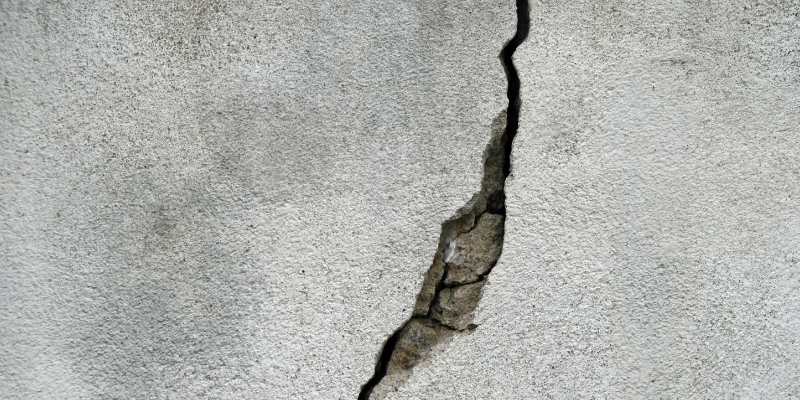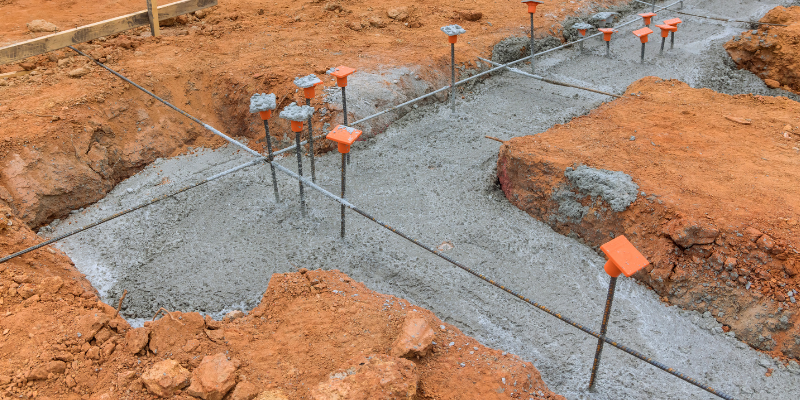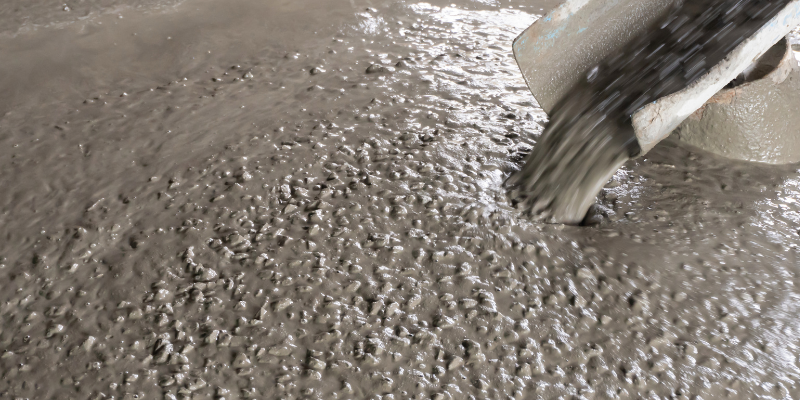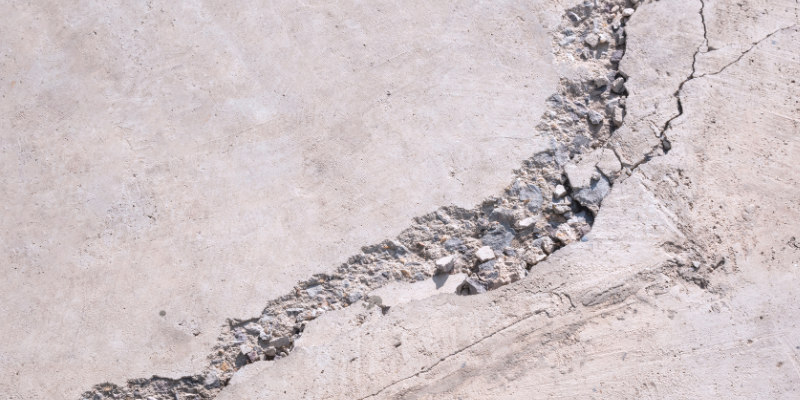Understanding Concrete Cracks:
Causes and Prevention Tips

Concrete is a widely used material known for its durability and strength, but even the most robust concrete structures can suffer from cracks over time. These cracks not only affect the appearance of concrete surfaces but can also compromise their structural integrity. Understanding the causes of concrete cracks and how to prevent them is crucial for maintaining the longevity and functionality of concrete installations. In this blog, we’ll explore the common causes of concrete cracks and offer practical tips for preventing them.

Common Causes of Concrete Cracks
Shrinkage
Concrete shrinks as it dries and cures, which can lead to surface cracks. This is a natural process, but if not managed properly, it can cause significant cracking.
Thermal Expansion and Contraction
Concrete expands and contracts with temperature changes. Rapid or extreme temperature fluctuations can induce stress in the concrete, leading to cracks.
Overloading
Applying excessive weight or stress beyond the concrete’s capacity can cause it to crack. This is particularly relevant for structural concrete, such as in floors and foundations.
Improper Mix Proportions
The ratio of cement, water, sand, and aggregates in the concrete mix affects its strength and durability. Incorrect proportions can weaken the concrete and lead to cracking.
Poor Compaction: If the concrete mix isn’t adequately compacted during installation, air pockets and voids can form, leading to weak spots that are prone to cracking.
Inadequate Curing
Curing is the process of maintaining moisture and temperature to ensure the concrete gains its full strength. Inadequate curing can result in incomplete hydration, leading to surface cracking.
Subgrade Settlement
If the ground beneath the concrete settles or shifts, it can cause the concrete slab to crack. This is often due to improper subgrade preparation or soil instability.
Rebar Corrosion
Reinforcing bars (rebar) are used to strengthen concrete, but if they corrode, they can expand and cause the surrounding concrete to crack.


Prevention Tips for Concrete Cracks
Use Proper Concrete Mix Proportions
Ensure that the concrete mix is prepared with the correct proportions of cement, water, sand, and aggregates. This helps achieve the desired strength and durability, reducing the likelihood of cracks.
Implement Adequate Curing
Proper curing is essential for concrete to achieve its full strength and durability. Keep the concrete surface moist and at a consistent temperature for the recommended curing period, typically 7 to 14 days, depending on the mix and environmental conditions.
Control Temperature and Weather Conditions
Avoid pouring concrete in extreme temperatures. Hot weather can cause rapid drying and shrinkage, while cold weather can slow down curing. Use protective measures such as curing blankets in cold weather or evaporative retarders in hot weather to mitigate these effects.
Incorporate Expansion Joints
Expansion joints allow for the natural movement of concrete due to temperature changes and shrinkage. Installing these joints at regular intervals can help control where cracks occur, keeping them contained within designated areas.
Ensure Proper Compaction
Adequately compact the concrete mix during installation to eliminate air pockets and voids. This ensures a more uniform and strong concrete surface less prone to cracking.
Reinforce with Rebar or Wire Mesh
Use reinforcing materials such as rebar or wire mesh to provide additional strength to the concrete. Properly placed reinforcement helps distribute loads and reduces the risk of cracks forming.
Prepare the Subgrade Properly
Ensure that the subgrade is well-compacted and stable before pouring concrete. Address any issues with soil instability or drainage to prevent future settlement and shifting that could cause cracking.
Use Quality Concrete
Invest in high-quality concrete from a reputable supplier. Quality concrete is more resistant to cracking and has better performance characteristics.
Monitor and Maintain
Regularly inspect concrete surfaces for early signs of cracking or damage. Promptly address any issues such as minor cracks or surface deterioration to prevent them from worsening.

Why Choose Pinnacle Paving Asphalt Services?
Pinnacle Paving Asphalt Services is Central Texas premier parking lot experts and your trusted paving partner for high quality craftsmanship, asphalt construction and repair, chip seal applications, and concrete work, and more. Our experienced team combines innovative techniques with traditional workmanship to create durable parking lots that will stand the test of time.
High Quality Durable Construction
We use only the highest-quality, durable construction materials to create durable surfaces that will withstand heavy usage and the test of time. Our turn-key process guarantees your project experience will be convenient and hassle-free.
Give us a call today to request a quote.
